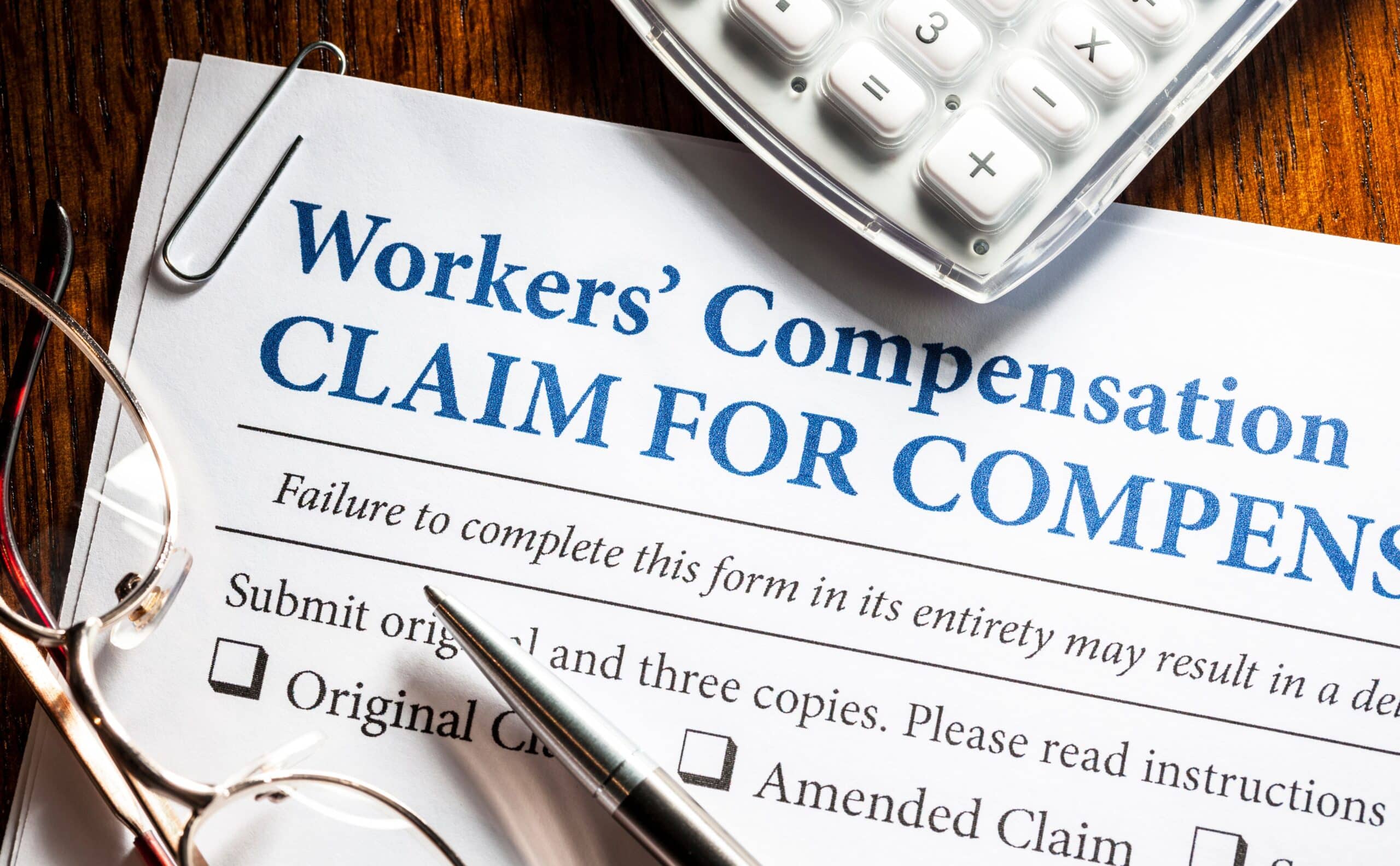Accident-Related Loss of Earning Claims
Accidents disrupt lives in countless ways. Beyond the pain of physical injury and the cost of medical treatment, one of the most devastating consequences is the inability to work. For many people, losing income is not just an inconvenience; it can jeopardize their home, their children’s education, and their family’s financial security.
This is where loss of earnings claims come in. They provide a legal pathway for victims to recover compensation for income already lost as well as the wages they will no longer be able to earn in the future. These claims are a critical part of personal injury law because they aim to restore financial stability when an accident suddenly takes it away.
In this detailed guide, we’ll cover everything you need to know about loss of earning claims, from definitions and calculations to real-world examples, evidence requirements, and legal challenges.
Table of Contents:
1. What Are Loss of Earning Claims?
2. Why Loss of Earning Claims Matter in Accident Cases
3. Types of Loss of Earnings: Past vs. Future
4. Legal Foundations of Loss of Earning Claims
5. How is Loss of Earnings Calculated?
6. Special Categories of Workers and Loss of Earnings
7. Evidence Needed to Prove Loss of Earnings
8. Real-Life Examples of Loss of Earning Claims
9. Common Challenges in Loss of Earning Claims
10. Why Legal Representation Matters
11. Conclusion and Call to Action
What Are Loss of Earning Claims?
A loss of earning claim is a personal injury claim focused specifically on recovering wages that accident victims could not earn because of their injuries. While pain and suffering compensation addresses emotional distress and medical damages cover healthcare costs, loss of earnings ensures that injured people are not left financially stranded.
Coverage of Loss of Earning Claims
- Past earnings lost during recovery
- Future earnings projected over a person’s remaining work life
- Bonuses, commissions, and overtime missed due to absence
- Retirement contributions and benefits affected by lost work
- Self-employed individuals or those with business income interrupted by injury
In short, these claims protect your livelihood, not just your medical expenses.
Why Loss of Earning Claims Matter in Accident Cases
The importance of these claims can’t be overstated. For many families, a paycheck isn’t just income; it’s the foundation of stability. Missing even a few months of work can cause severe financial hardship.
Imagine:
- A parent injured in a car crash can no longer pay for childcare or tuition.
- A young professional misses out on a promotion that could have doubled their income.
- A small business owner loses clients while recovering, some of whom never return.

Without loss of earning claims, these individuals would be left to carry the financial burden of an accident that wasn’t their fault. That’s why courts recognize lost income as a legitimate, compensable damage.
Types of Loss of Earnings: Past vs. Future
Loss of earnings typically falls into two categories:
This covers wages and benefits already lost between the date of the accident and settlement or trial. For example, if a delivery driver were out of work for 10 months, their past claim would include 10 months of wages, plus any regular overtime.
2. Future Loss of Earnings
Future loss of earnings considers how an injury affects a victim’s long-term earning capacity. If someone can no longer return to their original career or has to switch to a lower-paying job, the difference in income is calculated over the rest of their working life.
This category is often the most significant, particularly for young workers with decades of employment ahead.
Legal Foundations of Loss of Earning Claims
Loss of earning claims are rooted in the principle of restitution, the idea that injured parties should be restored to the financial position they would have been in had the accident never occurred.
Key legal principles include:
- Causation: The injury must be directly linked to the accident.
- Foreseeability: It must be reasonably predictable that the injury would result in lost income.
- Duty of mitigation: Victims must make reasonable efforts to minimize their losses, such as exploring alternative employment if possible.
These foundations guide how courts evaluate and award compensation.
How is Loss of Earnings Calculated?
Calculating loss of earning claims requires both hard evidence and educated projections.

Past Loss of Earnings
- Multiply the victim’s monthly or weekly salary by the number of months/weeks missed.
- Add overtime, bonuses, and allowances that would have been earned.
If you earn $4,000/month and missed 8 months, your past loss = $32,000, plus lost annual bonus of $5,000 = $37,000 total.
Future Loss of Earnings
- Age and expected retirement date.
- Career progression (e.g., promotions or pay raises).
- Inflation and cost-of-living increases.
- Health and life expectancy.
Example:
Special Categories of Workers and Loss of Earnings
Different types of workers face unique challenges in proving claims:
Harder to prove because income fluctuates. Tax returns, client contracts, and invoices become crucial.
2. Gig Economy and Freelancers
Rideshare drivers, delivery workers, and freelancers often have inconsistent income. Courts may rely on average earnings over 12–24 months.
3. Part-Time Workers
Claims are still valid, but calculations are based on actual hours missed and reduced earning capacity.
4. Students or Apprentices
Even if not currently employed, students and trainees can claim for future losses based on expected career paths.
5. Homemakers
Courts sometimes recognize the economic value of unpaid household labor, though these claims vary by jurisdiction.
Evidence Needed to Prove Loss of Earnings
The strength of a claim depends on evidence. Essential documents include:
- Payslips, contracts, and HR letters for employees.
- Tax returns and bank statements for the self-employed.
- Medical records proving inability to work.
- Expert vocational assessments predicting career limitations.
- Letters from employers or clients verifying missed work and lost opportunities.
Without solid proof, courts may reduce compensation significantly.
Real-Life Examples of Loss of Earning Claims
-
- Past losses: $15,000.
- Missed holiday bonuses: $2,000.
- Total claim: $17,000.
-
- Total future claim: $1,950,000.
Example 3: Business Owner
A contractor with average profits of $100,000/year breaks both legs and cannot work for 18 months. Their claim includes past income loss plus reduced business growth potential.
These examples show how loss of earning claims scale dramatically depending on career and age.
Common Challenges in Loss of Earning Claims
While loss of earning claims are a rightful path to fair compensation, pursuing them is rarely straightforward. Victims often encounter disputes and obstacles that can significantly delay or reduce their recovery. Understanding these challenges in detail can help accident victims prepare and strengthen their cases from the outset.

1. Insurers Denying Medical Severity
Insurance companies frequently dispute the extent of a victim’s injuries. They may argue that the medical evidence does not support the claim that the victim is unable to work or that the injury is less severe than described.
-
- Example: An insurer might suggest that a back injury is only a minor strain, even when the victim’s doctor has diagnosed it as a herniated disc requiring surgery.
- Impact: If the severity of the injury is downplayed, the insurer may argue that the victim could have returned to work sooner, thereby reducing the amount owed.
This challenge underscores the importance of obtaining comprehensive medical records and, when necessary, expert testimony from specialists who can explain the long-term effects of the injury.
2. Difficulty Proving Freelance or Gig Income
Traditional employees can prove lost income with payslips and contracts. Freelancers, gig workers, and self-employed individuals, however, often have fluctuating or irregular income streams, making it harder to establish a consistent earning pattern.
-
- Example: A rideshare driver injured in a car crash may have earned $1,500 one month and $3,000 the next. Without several months or years of earnings data, insurers may challenge the reliability of income projections.
- Impact: Courts may reduce compensation, arguing that projected income is speculative.
To overcome this, self-employed individuals should gather tax returns, invoices, client contracts, and bank statements to create a clear picture of their average earnings.
3. Courts Questioning Career Progression Assumptions
Future loss of earnings often involves projecting career paths. Courts are cautious about awarding damages based on assumptions that may not be guaranteed.
-
- Example: A junior associate at a law firm claims they would have made partner within 10 years. Unless supported by performance reviews, employer statements, or industry data, courts may view this as speculative.
- Impact: Compensation for future promotions or raises may be excluded, reducing the total award.
Legal teams often bring in vocational experts who can testify about the likelihood of progression in specific fields, strengthening the credibility of such claims.
4. Employers Disputing Absence or Pay Rate
Employers themselves may challenge loss of earning claims, particularly if they believe the employee could have returned earlier or if there are disputes about pay history.
-
- Example: An employer may claim that an injured worker took excessive time off unrelated to the accident or may contest the inclusion of bonuses as part of lost wages.
- Impact: This creates uncertainty in the claim and may require additional evidence, such as HR correspondence, attendance records, and employment contracts, to confirm the accuracy of the claim.
Having a lawyer handle communications with employers ensures that disputes are addressed professionally and documented correctly.
5. Failure to Mitigate Losses (Not Attempting Lighter Work)
In personal injury law, victims have a duty to mitigate their losses, meaning they must make reasonable efforts to reduce the financial impact of their injuries. This often means attempting lighter work or alternative employment.
-
- Example: A construction worker unable to return to heavy labor may be expected to explore supervisory or administrative roles within the industry.
- Impact: If a victim makes no effort to seek suitable work, insurers may argue that the claimant exaggerated their losses, leading to a reduced payout.
Legal teams can help victims demonstrate their efforts to mitigate, such as applying for alternative jobs or undergoing retraining, which protects the claim from being undervalued.
Why Legal Representation Matters
Loss of earning claims are among the most disputed parts of personal injury cases. Insurers fight hard to reduce payouts, often challenging both medical evidence and financial projections.
An experienced lawyer can:
- Gather and present strong evidence.
- Retain expert witnesses (economists, doctors, vocational specialists).
- Negotiate effectively with insurers.
- Represent you in court if the settlement fails.
At Roxell Richards Injury Law Firm, we specialize in maximizing loss of earnings claims for accident victims. We know what evidence courts demand, and we fight to ensure our clients receive every dollar they deserve.
Conclusion and Call to Action
If you or a loved one has been injured and can no longer work as before, don’t wait. Contact Roxell Richards Injury Law Firm today for a free consultation. We’ll evaluate your case, explain your options, and fight aggressively for your rights.
Houston, TX z7057
Phone: (713) 974-0388
Fax: (713) 974-0003
Frequently Asked Questions
What exactly is a loss of earnings claim in a personal injury case?
A loss of earnings claim is a legal action brought by someone injured in an accident to recover wages, bonuses, overtime, and other income lost because they couldn’t work due to their injuries
How are loss of earnings amounts calculated?
Calculations typically use your salary or wages, overtime/bonuses, and factor in how many weeks/months you missed work (for past losses). For future losses, they consider your age, career path, raises, retirement date, and life expectancy.
What evidence do I need to support a loss of earnings claim?
Key evidence includes payslips or wage statements, emails/contracts showing missed work, tax returns (for self-employed), medical records showing inability to work, and expert vocational or economic testimony for future losses.
Is it essential to hire a lawyer for a loss of earnings claim?
Yes—because these claims often involve complex calculations, future projections, and strong opposition from insurance companies. A skilled attorney can gather the evidence, retain expert witnesses, and negotiate effectively.
What are common challenges or obstacles in loss of earnings claims?
Some common hurdles: insurance companies minimizing the severity of injury; proving fluctuating income for self-employed; projecting future career advancement; and demonstrating that you tried to mitigate losses (e.g., seeking comparable job).

